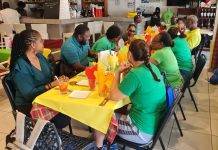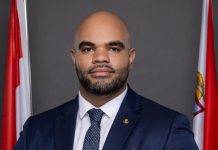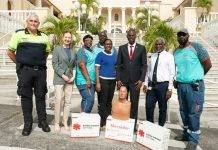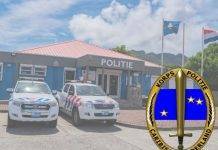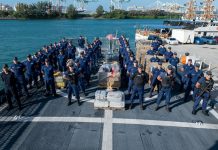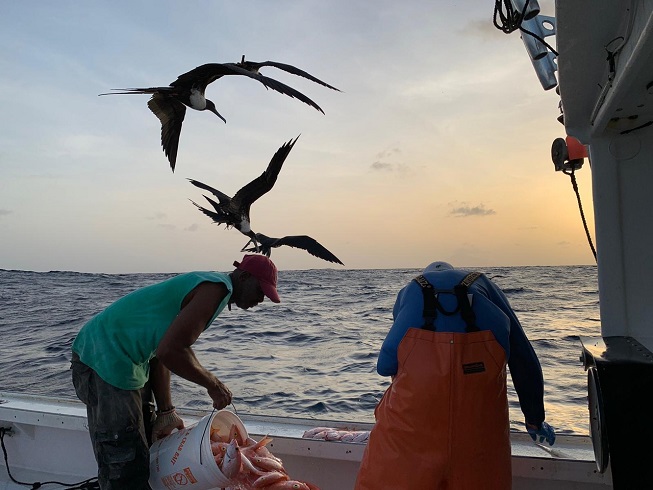Small islands like Saba have limited land making conventional agriculture difficult. Therefore, the sea represents one of the most important resources for local food production and food self-sufficiency. Marine resources are also of critical value for the tourism industry of such small islands. Recognizing this high local importance of the sea and its biodiversity, the Netherlands Ministry of Agriculture, Nature and Food Safety has been structurally funding applied fisheries research in the Netherlands Caribbean since 2010. The purpose of the research is in support of sustainable fisheries policy development. Starting this year, the Ministry has increased its funding of the fisheries research which is led by Wageningen Marine Research (WMR) in the Netherlands.
As the kick-off for this expanded initiative, the Saba Bank Management Unit (SBMU) organized a meeting on Thursday 29 June with the Saba fishermen to present the main results of 10 years of fisheries data monitoring for Saba and jointly discuss the course for the expanded research program for Saba. During this meeting Owen Clements MSc and Dolfi Debrot, PhD from Wageningen Marine Research (WMR), presented some main fisheries developments and trends and brainstormed with the fishermen about priorities.
Based on data up to 2020, the principal fisheries trends suggest a slight decline in snapper populations following several years of recovery while lobster populations seem to have remained stable even though catches had declined in the years following hurricanes Irma and Maria in 2017 and the COVID19 pandemic. Population modelling further suggest that principal species are currently at maximum yield levels to slightly overfished on the Saba Bank. Even so, the Saba Bank fisheries are still about the healthiest in the Caribbean Netherlands.
The fishermen indicated several possible new fisheries resources to investigate and develop in order to diversify the fishery These include work on shrimp crab and squid resources.
By diversifying the fishing possibilities, it becomes possible to shift fishing throughout the year especially in response to seasonal closures needed to allow sustainable stock recovery as well as to seasonality in markets or fish availability. With alternatives to choose from fishers can maintain their incomes even when certain fisheries might need temporary closure to protect breeding aggregations or allow stock recovery.
The meeting was deemed highly productive by both SMBU and WMR and sets the stage for an invigorated fisheries research and development program for the years to come.

